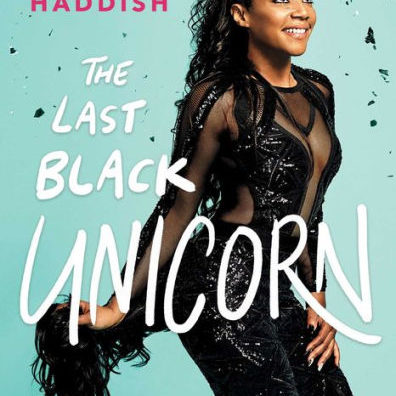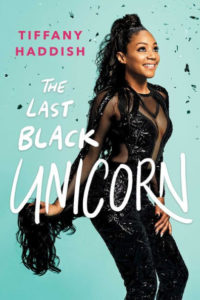
 I finished a book called “The Last Black Unicorn” by Tiffany Haddish. She’s a comedian who starred in Girls Trip, a hilarious movie I watched in an aisle seat in the bulkhead row on a first-class flight from Raleigh to Los Angeles.
I finished a book called “The Last Black Unicorn” by Tiffany Haddish. She’s a comedian who starred in Girls Trip, a hilarious movie I watched in an aisle seat in the bulkhead row on a first-class flight from Raleigh to Los Angeles.
As people congregated in the aisle and waited for the toilet in the forward cabin — which is against FAA rules — they looked over my shoulder and watched me laugh at nasty scenes.
(You should see the movie.)
“Girls Trip” destroyed box office expectations and earned $140,073,354 worldwide. Lots of strong performances from amazing actors like Jada Pinkett Smith and Queen Latifah, but Tiffany Haddish is the star of the movie. She makes every scene better.
The Last Black Unicorn is an Origin Story
“The Last Black Unicorn” chronicles Tiffany’s life, which begins in poverty and foster care. Her early years are full of abuse and neglect. Powerful people with authority failed to protect her, and she couldn’t read above a second-grade level until she was in high school.
But Tiffany was resilient and determined to make a better life for herself. She fought hard to attend comedy class and learned how to tell jokes. When she wasn’t performing on stage, Tiffany always had a job. She was a high school mascot and worked the Bar Mitzvah circuit in Los Angeles. She eventually found a good job at an airline.
While working and performing and sometimes living out of her car, Tiffany tried to take care of her parents and grandparents, too. Raised Jehovah’s Witness, she felt a responsibility to heal her family’s wounds. Tiffany could have been bitter or angry about life, or she could have acted like a jerk at work. Instead, was kind to her colleagues and friends.
(Read the chapter on Roscoe and tell me what you think.)
It’s a Sad Book
Tiffany has hilarious stories about her rise to fame, but many of her stories are also about domestic violence and assault. When she’s a child, she was molested and beaten. As a young woman, men treated her like dirt. As she got older, it’s not much better. Tiffany had a string of relationships where men treated her like property.
For example, she married an ex-cop. He watches her, videotapes her without consent, and checks her phone. He’s always monitoring her social media accounts. Ultimately, he puts limits on who she can talk to and has her followed by his friends.
Then her husband moves her away from her friends and colleagues and limits her social interactions. Tells her she needs to be a wife, first, and then a comedian. And, you guessed it; he beats her.
Why do women stay with people who abuse them? Why don’t they walk away? Why don’t they leave before these men get so violent?
There are a lot of reasons smart and talented people don’t leave abusive relationships. Tiffany had a stepson and loved him. She felt the duties and obligations of being a wife. And she loved her husband. Hope springs eternal until it doesn’t. If you read the chapter where it all falls apart, your heart will break.
Why You Should Buy This Book
So, I hate saying that “The Last Black Unicorn” was a great book because some stories were shocking. But I’m grateful that Tiffany Haddish wrote a brave and honest book about her life. If she can talk about it and work on healing, there’s hope for all of us.
And, since we’re approaching the end of National Stalking Awareness Month, I wanted to remind you that stalking — including online stalking and cyber-stalking — are leading indicators of domestic violence.
If you see a woman struggling, say something. Offer online resources. And share Tiffany Haddish’s book. There is hope for women out there who endure the pain and shame of stalking and are looking for a kindred spirit.
In that way, I can’t recommend the book enough.
You must be logged in to post a comment.